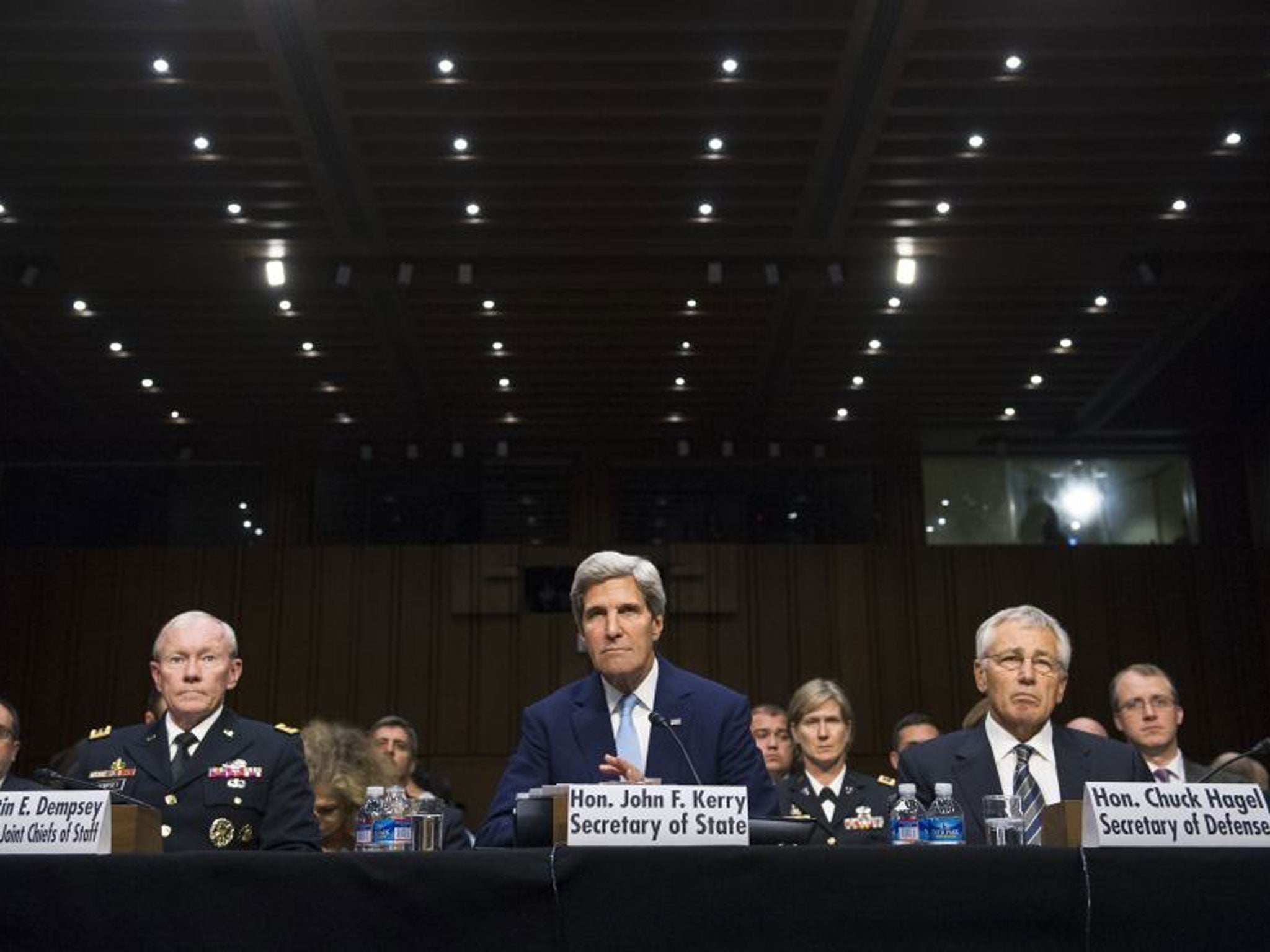Syria crisis: Obama lines up Congress support for intervention as US Senate votes on draft plan
As President Barack Obama leaves for Europe, the White House keeps up campaign for Congressional support on action

Your support helps us to tell the story
From reproductive rights to climate change to Big Tech, The Independent is on the ground when the story is developing. Whether it's investigating the financials of Elon Musk's pro-Trump PAC or producing our latest documentary, 'The A Word', which shines a light on the American women fighting for reproductive rights, we know how important it is to parse out the facts from the messaging.
At such a critical moment in US history, we need reporters on the ground. Your donation allows us to keep sending journalists to speak to both sides of the story.
The Independent is trusted by Americans across the entire political spectrum. And unlike many other quality news outlets, we choose not to lock Americans out of our reporting and analysis with paywalls. We believe quality journalism should be available to everyone, paid for by those who can afford it.
Your support makes all the difference.The US Senate could vote today on whether or not to approve a plan drafted last night that would permit President Barack Obama to order a “limited and tailored” military strike against Syria.
The top members of the Foreign Relations Committee for Congress’s senior house have agreed upon the terms of the resolution, which would allow for a mission of up to 60 days with the combat use of American troops on the ground strictly prohibited.
If the president felt it necessary the proposed action could then be extended for a further 30 day period – but that would have to be ratified by another Congressional vote.
With Mr Obama in Europe for the rest of the week, his administration has been left to fight for a Syrian military intervention without him.
They face the daunting task of convincing both conservative Republicans who are demanding a fuller-scale assault in order to topple the regime of Bashar al-Assad, accused of using chemical weapons on its own people, and sceptical members of the House of Representatives who are against any military action whatsoever.
Progress winning over the Senate has been strong for the administration over the past couple of days, with normally fierce foreign affairs rivals and Republican Senators John McCain and Lindsey Graham already saying they will back the president on a Syria strike.
The committee's chairman, Democratic Senator Bob Menendez, said: “We have an obligation to act, not witness and watch while a humanitarian tragedy is unfolding in plain view.
“We have pursued a course of action that gives the president the authority he needs to deploy force in response to the Assad regime's criminal use of chemical weapons against the Syrian people, while assuring that the authorization is narrow and focused.”
Secretary of State John Kerry had earlier told the committee that the White House would be happy to accept a troop restriction, saying: “There's no problem in our having the language that has zero capacity for American troops on the ground.”
The support of the Senate alone will not be enough for Mr Obama, however; if a Syrian mission is to receive full Congressional approval he will also have to convince the so-called “lower” – and Republican-dominated – House of Representatives.
The House Speaker John Boehner was joined by a number of key figures, both Republican and Democrat, who voiced their support for the president yesterday.
Mr Boehner emerged from the White House saying: “[The US has] enemies around the world that need to understand that we're not going to tolerate this type of behaviour. We also have allies around the world and allies in the region who also need to know that America will be there and stand up when it's necessary.”
Representative Eric Cantor, the House majority leader, also backed action. But he acknowledged the split positions among both parties and said it was up to Obama to “make the case to Congress and to the American people that this is the right course of action”.
With talks in the US marked by anti-war protests, and BBC reports of the latest opinion polls suggesting six in ten Americans are against missile strikes against the Assad regime, Mr Obama’s greatest opponent may yet be the weight of public opinion.
The administration says 1,429 people died from the attack, which included the use of the sarin nerve agent, on 21 August in a Damascus suburb. But the British-based Syrian Observatory for Human Rights, which collects information from a network of anti-government activists in Syria, says its toll has reached 502. And while Mr Assad's government blames the incident on rebels, the UN is still to report following the work of its inspection team.
Mr Obama, who arrived in Stockholm this morning, will be hoping the momentum of his efforts to persuade lawmakers can be maintained in his absence.
The president will travel from Sweden's capital to an economic summit in St Petersburg, Russia, on Thursday, and will be hoping that he can use the trip to Europe to gather more international support for action than he currently has. Among major allies, only France has offered publicly to join the US in a strike, although President Francois Hollande has said he will await the decision of the US Congress.
Subscribe to Independent Premium to bookmark this article
Want to bookmark your favourite articles and stories to read or reference later? Start your Independent Premium subscription today.
Join our commenting forum
Join thought-provoking conversations, follow other Independent readers and see their replies
Comments